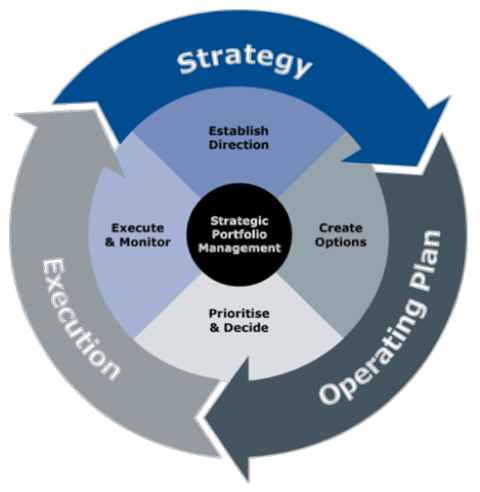
Portfolio Manager
How to become a portfolio manager?
With the market changing at an exponential rate there is a growing need of a person who can manage funds, our investments with the required analysis of the current trends and changing dispositions, leading to the best possible results for your investments. This has given rise to the need for adequate portfolio management.
What is portfolio management?
Portfolio Management Meaning:
The process of making investment decisions, the allocation of adequate assets, for individual investors as well as organizations, while calculating the risks, market tendency and other factors involved, is known as portfolio management. It is the art of regulating risk and opportunities in the market, in relation with several trade-offs like safety vs growth, international vs domestic, equity fund vs debt and so on, it is done with the objective of being able to find the most profitable investment decisions keeping in mind the underlying risk.
What is Portfolio Management services?
These are services offered by a Portfolio manager are ideally the management of a financial portfolio for the client in relation to making investments in cash, stock market debt, investment banks, securities, and exchange etc for meeting the specific short- or long-term financial goals of the clients.
When one invests in portfolio management services, you become the owner of individual funds, unlike in the case of mutual funds; where one owns units in a fund. You have the ease and freedom to tailor these services according to your specific requirements in order to be most profitable for you.
Types of Portfolio Management services
There are several different types of portfolio management services that you can select from, depending upon what your aims are. Have a look at some of them further explained below:
Discretionary Portfolio management services
Here the show is practically run by the fund managers. Once the client has given the money which they intend to invest, they watch as the portfolio manager freely adopts strategies he/she deems fit in order to achieve the best results for them. The time frame, as well as the ultimate financial aims of the investor, are kept in mind while forming the most effective plans to put your money to work.
Non-Discretionary Portfolio Management services
In this type of portfolio management, the reigns are in the hands of the investor. The financial advisor will only show you different options, make the best suggestions, keeping in mind the optimum market conditions and risks etc. However, you are going to be the one to make all the decisions. It’s only after you confirm that you want to go ahead with a given idea will the manager do the needful.
Active Portfolio management services
The primary aim is here is to be able to achieve more returns that the market promises at the minute. One of the examples of how they function is the buying and selling of stocks when the market would suggest otherwise. This type of portfolio management requires a detailed analysis of the company profile to determine if and when their stock prices are going to see rise and fall. Besides this, their potential for being beneficial in the time to come and the comprehending risk involved in the same is also considered.
Investment is usually done in various sectors for optimum risk management. The skills of your investment advisor is of prime importance here and if they make the right researched decisions you can make good profits out of it in the long run.
Passive portfolio management services
The strategy put to play in passive management is market research and speculation above all for the best returns with the help of effective financial services. The belief here is that the position or worth of a company can be seen in the stock prices. Hence, this type of investment managers mostly relies on investments in index funds which may be low in terms of turnover currently but tend to have a sure shot long term worth.
The key is to make profits with stable market conditions and skipping expenses like management fee with the help of low yielding investments, rather than large-cap ones.
What is Agile Portfolio Management?
As the name suggests, Agile portfolio management is the quick response and planning to encounter any sudden or unpredictable movement in market situations. With regular and frequent meetings known as iterations or sprints, the idea is to provide hands-on aid as and when required. This is most useful considering the ever so dynamic nature of the stock market.
It deals with the organization, determination, and prioritization of various products. Keeping in mind sustainable long term growth of the profile, strategically optimized development is done.
What does a Portfolio manager do?
You may have gauged by now from the portfolio management definition, that the job of the portfolio manager is similar to that of a financial analyst. Putting in extensive research, portfolio managers work closely with stock brokers and clients creating the best financial solutions.
How to become a Portfolio manager?
With the boom in the industry, becoming a financial services portfolio manager is an extremely viable career path and more and more people are choosing it after completing their financial studies.
A bachelor’s degree in finance, business, economics, accounting or statistics is required. After this, you are required to acquire a Financial Industry Regulatory Authority license to practice as a portfolio manager.
A separate portfolio management certification for different financial verticals can be attained as well. Have a look at the eligibility, educational requirements and career options for a portfolio manager.
Education
- A bachelor’s degree in a finance related field
- Finance internship to help you grow your understanding and network
- A master’s degree in a finance related field(It is not something mandatory but can prove to be extremely helpful in understanding the basics of this field in the long run)
Eligibility Criteria for a Portfolio Manager
Eligibility criteria as defined by Sebi include:
- The candidate is required to be employed for at least 5 years in fund management related field. There are capital adequacy requirements that need to be fulfilled too.
- For the registration of a portfolio manager, you need to deposit a non-refundable sum of 1 Lakh INR; towards the Securities and Exchange Board of India (SEBI). When you become a portfolio manager, you are required to deposit a sum of 10 lakhs for the grant of the certificate of registration.
- The minimum net worth of the candidate is to be 50 lakhs INR. There is a SEBI issued certificate of registration that stands valid for three years.
Rules to be followed by a Portfolio Manager
- Before taking up a client’s account there is a written agreement with the client stating all the terms and policies. The obligations and liabilities involved should be defined clearly. This agreement needs to contain the requirements as stated in the schedule IV by the SEBI Regulations 1993.
- The fee for every financial activity done by the portfolio manager should be predefined and understood by the client. It may be return based or fixed income, as decided between the two parties.
- The manager is to provide the client with a disclosure document that contains the manner of payment, the risks involved etc. to the client a minimum of two days prior to entering an agreement.
- The total money invested by the portfolio manager should exceed the funds the client has agreed to invest at any point in time. There should be with no borrowing involved, and investing what has been designated for the predefined asset management.
Career options for a Portfolio Manager
You can choose to opt as a private practitioner or work with renowned organizations that offer financial management services. There are great job and remuneration opportunities after becoming a portfolio manager. Have a look:
Salary of a portfolio manager
Typically the salary of a portfolio manager varies from 11-12lakh per annum, and this grows with years of experience and recommendation by happy clients.
This is one of the most secure and booming career options in the finance industry and you can definitely opt for it if you’re looking for growth and stability in the long run.
NISM XA Investment Adviser Level 1 – Video Course







